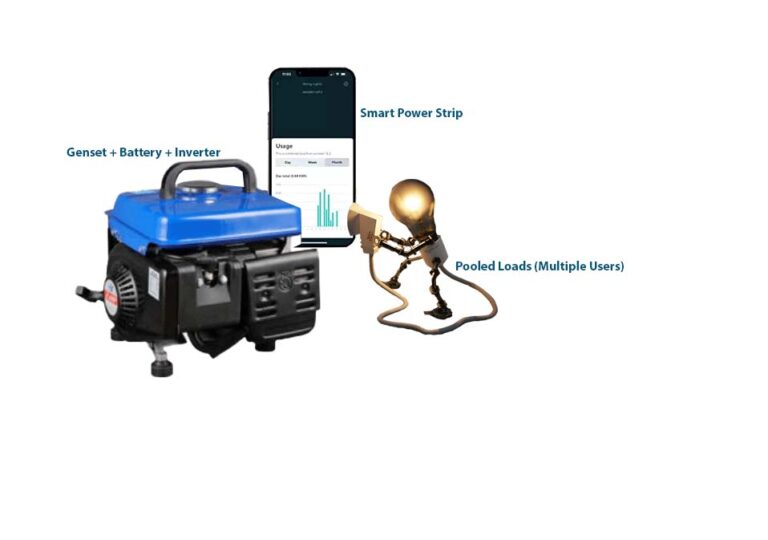Gaining Customer Acceptance of PV-Based Inverters in Nigeria
Unreliable electricity supply has continued to prevail as a major challenge in Nigeria and several developing nations. This has led to the adoption of fossil fuel-based backup generators as an alternative source of electricity. The use of these generators is not only dangerous to the environment but typically costly to acquire and maintain. Some reports have estimated that Nigeria spends about three times what it does on the grid on backup generators. The effect of this is a strain on businesses and households to afford the much-needed electricity supply.
Amped innovation to solve the energy crisis and reduce the reliance on fossil fuel generators, developed the PowerHub. The PowerHub (also referred to as a solar generator) has the goal of utilizing solar energy to provide electricity access to millions of business owners in Nigeria at a cost well below that of fuel-based generators while utilizing the flexible “pay as you go” model. To gain customer acceptance for the PowerHub in Nigeria, Amped Innovation partnered with Engineering for Change. This involved acquiring an “on-the-ground” understanding of the solar energy landscape in Nigeria and identifying the pain points of the customers and distributors.
The project approach began with qualitative interviews with several stakeholders along the value chain who served as key informants for their group. The interviewees were primarily distributors of solar products and small business owners requiring regular electricity. They answered questions on the energy challenges faced in Nigeria, the cost burden of the fuel generator, and their perspective towards solar energy products. Distributors, in particular, were given a glimpse of the specification sheet for the PowerHub, from which they highlighted the specifications that they prioritized and identified areas of improvement for better representation of the product.
Following the synthesis of the interviews and taking into consideration the key takeaways, a specification booklet was developed for the PowerHub. This revised specification document was scrutinized by distributors of solar products in the second round of interviews, and the feedback was affected in the design of the final document. Alongside this, a specification booklet was also developed, which will be used to communicate the PowerHub with potential customers.

Amped Innovation’s Solar Generator Powerhub, Credit: Amped Innovation
